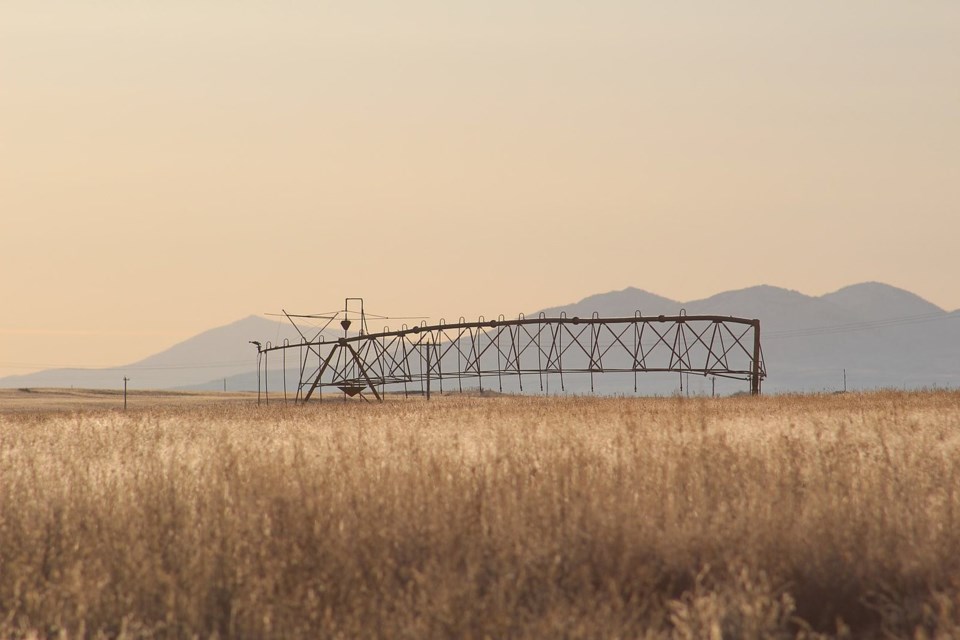Canadian agribusinesses are asking for a standardized scale to measure their environmental impacts — a request some advocates worry is little more than smoke and mirrors.
Their concern follows a report published last week by a coalition of Canadian agribusinesses, non-profits and government agencies. According to the document, Canada’s agriculture and food sectors have already taken significant steps to measure their environmental impacts but, to remain globally competitive, need industry-wide, data-driven standards.
Food is responsible for between 21 and 37 per cent of anthropogenic greenhouse gas emissions, according to the UN Environment Program.
In Canada alone, agriculture is the sixth-largest emitter of GHGs, with 87 per cent of these emissions going to crop and animal production in 2019, according to Statistics Canada, while food waste is responsible for roughly 56.5 million tonnes of CO2 equivalents annually, according to a 2019 report by Second Harvest, an organization advocating for food waste reduction. That’s equivalent to the annual emissions of 12 million cars.
Not only that: industrial food production, processing, transportation and disposal has been linked to everything from declining pollinator populations to water quality to labour issues.
“Worldwide, there’s a dramatic shift to better assess how supply chains, companies and countries alike are making changes against global goals,” David McInnes, an industry consultant and the report’s author, said in an interview. Those include the UN’s sustainable development goals, commitments under the 2015 Paris Accord and global targets to protect biodiversity.
Those issues are increasingly part of public policy, financing agreements and consumers’ choices at the supermarket, McInnes explained. It’s enough pressure to make the agri-food industry want to change its practices — and measure them.
“You need to be transparent; you need to report against goals, and that’s where benchmarking is becoming such a profoundly pervasive feature of how we produce and supply and consume our food.”
But that process is more effective with standardized goals, unlike the current situation. As it stands, individual companies or industries have environmental and labour standards, but there is little co-ordination between them, making it difficult to get a holistic picture of changes to the overall impacts of Canada’s food system, McInnes said.
Not everyone is convinced.
“The (agribusiness) argument always is 'more research is needed, more numbers are needed,'” said Darrin Qualman, director of climate crisis policy and action at the National Farmers Union.
“But we know so much about emissions from fertilizer, we know so much about the loss of insects and birds, we know so much about GHGs … We just need to act on that very rapidly.”
The problem isn’t a lack of data on farming practices or the lack of sector-wide benchmarks, he explained. It’s farming on an industrial scale — a model long promoted by the federal government, many universities and the agribusiness sector. It’s a type of farming that’s inherently unsustainable, Qualman explained, because it relies heavily on artificial fertilizers, pesticides and seeds.
That means farmers need to maximize the yields of a few commodity crops, many of them destined for export, to stay in business. Maintaining those levels of productivity depends on artificial fertilizers, pesticides and carbon-intensive farming techniques.
And even if farmers want to farm more sustainably — and many do, Qualman said — it will be almost impossible for many to afford unless there are significant changes in federal agricultural policy and financial support.
It’s a model at the heart of some of the coalition members’ businesses. For instance, Bayer CropScience Canada and Syngenta Canada are both major distributors of seeds, herbicides and pesticides. These companies’ need to increase the use of these products won’t change, regardless of farms’ efficiencies and the ability to clear sustainability benchmarks.
Not only that, Qualman worries that a heavy reliance on data — which is crucial for benchmarking to be effective — could harm farmers’ independence, especially if the technology and databases are owned by the same companies selling seeds, fertilizers and pesticides. That’s not to say technology doesn’t have a place in agriculture, but he said it needs to let farmers manage their farms independently and control how their farm data is used.
Ultimately, he said, data and benchmarking alone won’t make farms and food systems more sustainable. Supporting farming systems that don’t need fertilizers, pesticides and lots of fuel will.
“To get fewer emissions and fewer unintended consequences, and slow the loss of biodiversity, we’ve got to find ways to get more of what we need (to farm) from biology and less from industry.”

